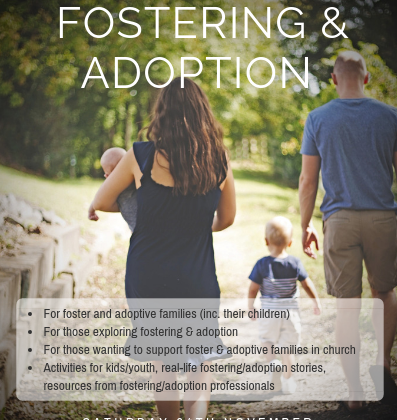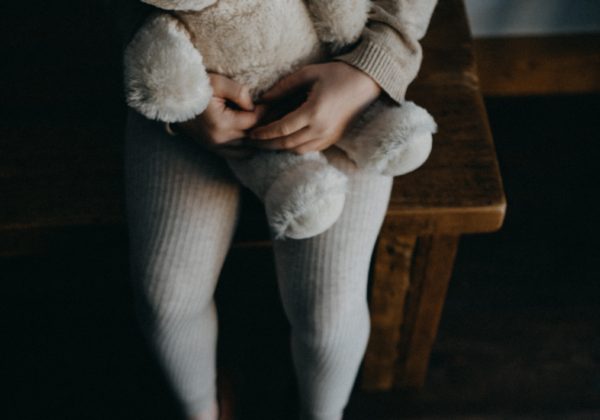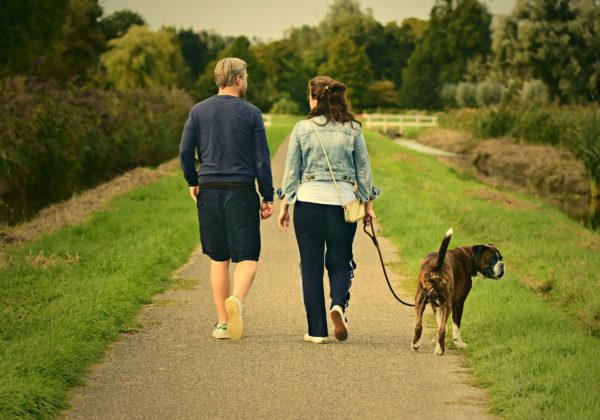
Roger & Paula’s Story – Appreciating Fostering & Adoption

Our Appreciating Fostering and Adoption event is only a few weeks away now. As well as hearing stories about the fostering and adoption journey from those who are walking it, we’ll also be spending time during the event exploring how supportive churches are essential in helping foster and adoptive families to thrive.
The research into the life outcomes for the 9,000 young people who leave care each year doesn’t make for good reading. 38% are not in education, training or employment (NEET), and 22% of female care leavers become teenage parents. 24% of the adult prison population and 11% of homeless young people are care leavers. A third of sex workers have been in care. The futures of thousands of children depend on more people stepping forward to foster and adopt.
And who better placed than us? The Church is uniquely positioned – both in terms of finding families to foster or adopt and providing an excellent community of support to wrap around those who do.
We’re excited to be partnering with Home for Good for our Appreciating Fostering and Adoption Event. Home for Good is a national charity which aims to make fostering and adoption a significant part of the life of churches in the UK, seeing Christians and their churches equipped to welcome and care for the most vulnerable children and young people in our society. Home for Good are working to see a culture change in the Church which inspires and supports those considering or involved with fostering and adoption. They, like us, are passionate to see futures transformed through this life-changing family we call The Church.
This week we’re excited to share with you Roger and Paula’s story of adopting their daughters.
We also welcome you to watch a short video exploring the adoption journey of another local family below.
If you are interested in learning more about how your Church can become a more supportive place for foster and adoptive families, we invite you to book in for the Appreciating Fostering & Adoption Event on 24.11.18. event here.
Watch this space for more inspirational stories of the fostering and adoption journey.
On behalf of Love Black Country
Roger and Paula’s Story
In 2006, after 7 years of trying for a family, my husband and I adopted two very young sisters, aged 21 months and 7 months. We were aged 44 and 42 respectively. Tragically, after only 4 days of both our children coming to live with us, we noted a sizeable lump on our older daughter’s body which was subsequently diagnosed as an aggressive form of terminal cancer.
Throughout this time, our friends and especially people within our local church were invaluable, practically and spiritually. Our younger daughter stayed with people in the church so that our lives could be a little easier. Many people showed they were praying for us. At the time, we were broken and unable to pray ourselves because of the trauma we were experiencing – “how could God allow such an apparently cruel thing such as this to happen?” But it helped us to know that our situation was being brought before God by faithful Christians that cared. Other people in our Church were helping us to understand that somehow there was an overriding reason why it had happened and that God was helping us to move through it.
After her death, we were left with a deep sadness in our hearts which never really goes away. However, our younger daughter gives us, on a daily basis, a reason to carry on as a family.
The realities of adoption
Although adoption can be immensely rewarding, it can also be challenging. We have come to realise that although our younger daughter was removed at birth from her birth parents and lived with an exceptionally loving foster family for 7 months, the loss of her sister and her past have started to catch up with her.
She is now 13 years old and life has been extremely tough at times. We can see that her friends at school do not appear to be having the difficulties that she has. Everything takes so much longer. She talks with emotion, anger and an overriding need to be in control. This can be perceived as rudeness and persistent disrespectfulness. Most of the difficulties we have been having recently had not be evident during the earlier years. In a world of high expectations, we see our child lagging behind emotionally. When it is time to do homework or there is conflict of what we would like to see in our child and what she wants, her behaviour has been extremely challenging with regular point-blank refusal, followed by shouting, hitting, swearing, kicking, biting, throwing furniture around and emotional abuse. Although part of this is normal teenage behaviour, there seems to be an additional layer. We have been left exhausted, low in mood and with a sensation of feeling isolated with worry about the future. We often feel misunderstood and even avoided by other parents.
Despite all this, in the background of her behaviour, we see our girl show a very loving, caring side after everything has calmed down. People outside of the home have commented on how proud we should be feel and what an absolute delight she is. School have commented on how well see gets on in school and that she has real talent. At parent’s evening it felt like they were talking about a completely different child and we were so encouraged by this.
How can churches support foster and adoptive families?
Our church continues to be a safe place for us and we’re so grateful that. We are currently engaging in a variety of therapies as a family to help us support our daughter and to help her develop and thrive. We were only made aware of the availability of this type of help because of a person in our church who has also adopted children. They gave us the time and understanding that we needed and their care and advice was so helpful. We’ve also been supported by a group called Christians in Adoption, based in Halesowen, who helped us understand that our child may be affected by difficulties with attachment and emotional difficulties.
We’d love to think that all churches were welcoming and understanding environments for foster and adoptive families. We believe that what’s needed is for people in churches to understand how early trauma and absent/dysfunctional early life experiences can affect a child and their ability to form meaningful relationships. It would also help for other people in the church to understand that this early trauma may affect a child’s behaviour in church and that the parents’ apparent “softer” approach to dealing with such behaviour actually has good reasoning. It’s easy to tut, shake your head and make judgments about a child’s ‘bad’ behaviour and the parents’ approach to challenging it but what’s needed is for churches to be more inclined to listen and attempt to understand. By doing so, we can feel more empowered and less isolated as parents.
Adoption and fostering is not for the faint hearted but with the help of a supportive church and our faith in God, what can be achieved through Him can completely transform young lives from what might have been to what He has planned. We don’t really know what our eldest daughter could have become but take comfort from the fact that with God’s help, she died surrounded by love. We would like to think that one day our younger daughter will truly come to realise that she is surrounded by love as well. To be used by God in this way, despite its challenges, is a true honour and we’ll always be grateful that we are her parents.
Related posts
 A First Ever Party Invitation - How years of prayer for Black Country families are being visibly answered through the work of hundreds of volunteers.
A First Ever Party Invitation - How years of prayer for Black Country families are being visibly answered through the work of hundreds of volunteers.




